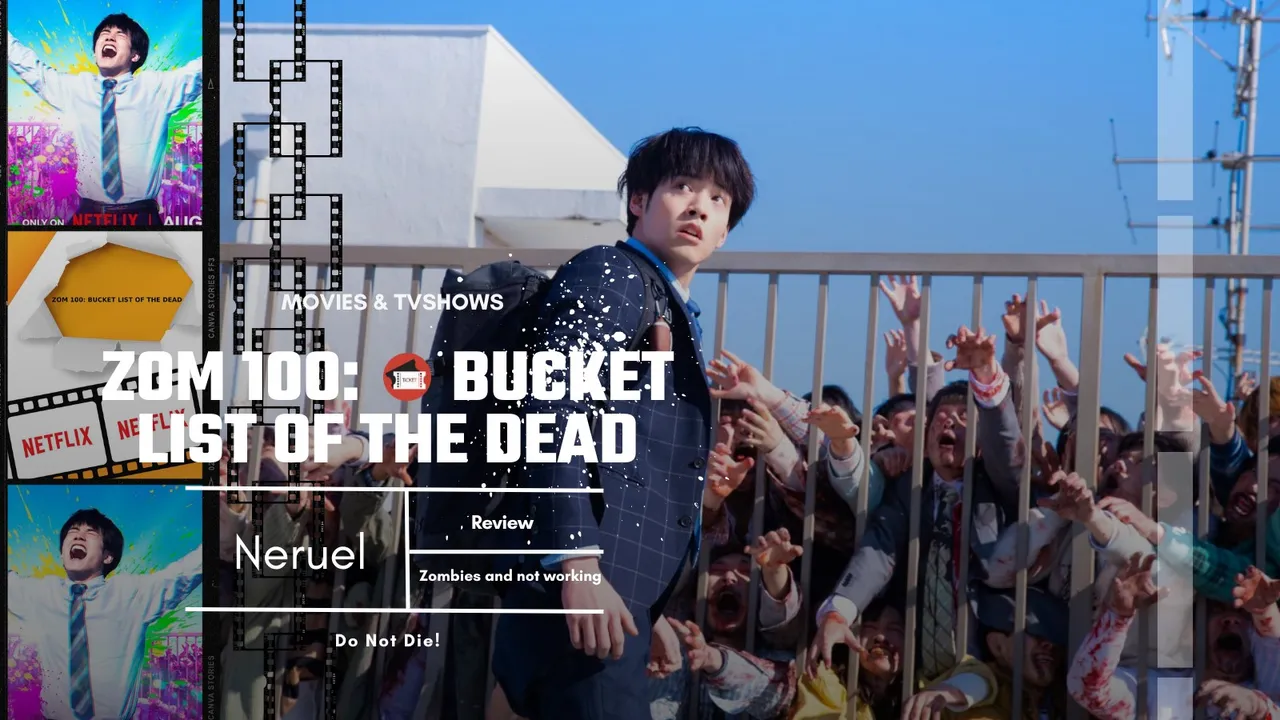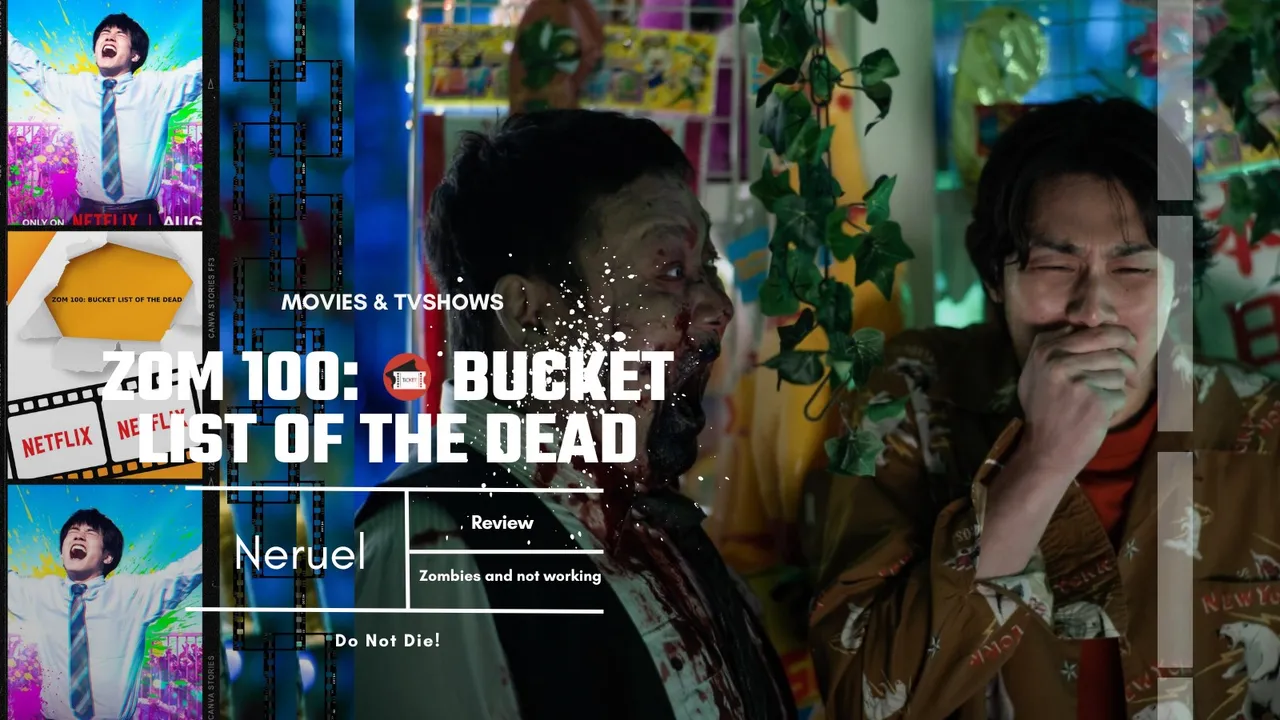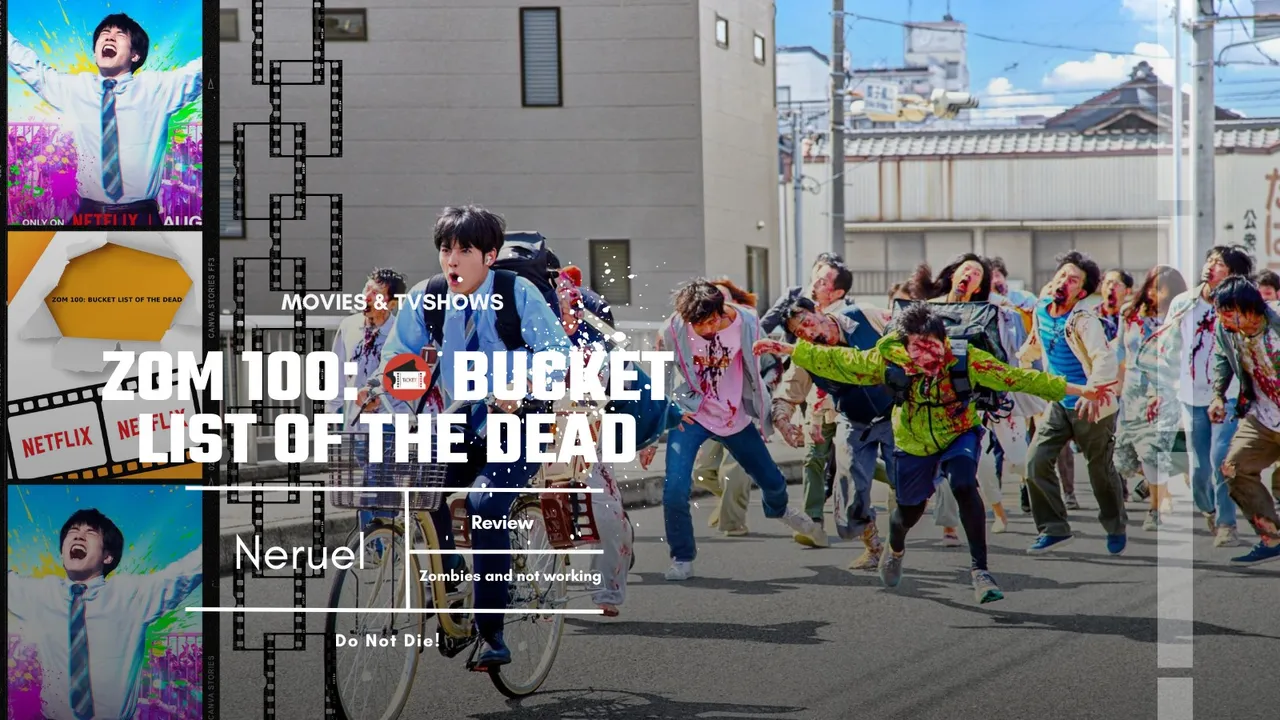Modest, maybe, just maybe with a little bit of unhinged eagerness. A secular argument, but one that doesn't fully compact with the daring sequence or the filmic composition. A beauty invested in anomalies where a critique of the labor model is empowered as the most attractive.
Modesta, tal vez, solo tal vez con un poco de ansia desbaratada. Un argumento secular, pero que no compacta totalmente con la secuencia atrevida o la composición fílmica. Una belleza investida en anomalías donde una crítica al modelo laboral se potencia como lo más atractivo.



When we watch a film, we enhance the best or worst of it. Here is the very principle of what we wish to visualize when we have the opportunity to connect with a production that can be different, attractive, and at the same time shocking because of its sequence.
I always think that we should pour ourselves into the opportunity to enjoy something different or out of the ordinary. The common is everywhere, that's why we human beings like what is different. That difference is what can make a work with the same sequence potentially attract attention.
Coincidentally, this film has a common plot, an intriguing social context and a deplorable dénouement. I'm being frank, but believe me, if you want to see this plot, you will be able to see something that really intrigues you: the context of labor exploitation and not the central focus, which are the zombies.
The center of the film lacks incredible compactness with the focal plot; the protagonist is an attractive person, charismatically striking, and above all, with very marked ideals. However, he succumbs to reality: society is very harsh. It's all because of the working hours in Japan.
Cuando vemos un film, potenciamos lo mejor o peor de ello. He aquí el principio propio de lo que deseamos visualizar al tener la oportunidad de conectar con una producción que puede ser diferente, atractiva y a la vez impactante debido a su secuencia.
Siempre pienso que nos debemos verter en la oportunidad de disfrutar algo distinto o fuera de lo común. Lo común está en todos lados, por eso a los seres humanos nos gusta lo diferente. Esa diferencia es la que puede hacer que una obra con la misma secuencia pueda llamar la atención de manera potencial.
Casualmente, esta película posee un argumento usual, un contexto social intrigante y un desenlace deplorable. Estoy siendo franco, pero créame que si desea ver esta trama podrá ver algo que realmente le cause intriga: El contexto de explotación laboral y no el foco central que son los zombis.
El centro de la película carece de una compactación increíble con el argumento focal, el protagonista es una persona atractiva, carismáticamente llamativa y sobre todo con ideales muy marcados. Sin embargo, sucumbe ante la realidad: La sociedad es muy dura. Todo es debido a las jornadas de trabajo en Japón.



It is no secret that one of the most unanimous realities on our planet is the high working hours in Japan. Getting a job, having economic stability, and above all, a coherent relationship with your personal life and work is a priority. When there is an invasion of these connotations, it is evident what happens: imbalances. All this is shown in this film in the beginning.
I liked the charisma shown by the main actor, but little by little the plot became less than ideal. One of the best qualities is how they nuanced the main plot from the beginning, but they strongly blurred it. I was expecting a plot full of horror and gore, but I felt like I was watching Power Rangers. Something very out of context.
I think they tried to nuance a bit the comedy that characterizes anime, however, this is not something that favors a plot with a horror context, unless the dialogues and plot have a totally different genre than horror.
Everyone at some time in life has gone through a methodical, a deplorable and not very asymmetrical scheme occupationally. The aspect shown in the plot is labor exploitation, a submerged criticism that is mentally induced or reiterated little by little.
Para nadie es un secreto que una de las realidades más unánimes en nuestro planeta son las altas jornadas de trabajo en el país nipón. Conseguir empleo, tener una estabilidad económica y sobre todo una relación coherente con tu vida personal y trabajo es prioritario. Cuando existe invasión de estas connotaciones es evidente lo que sucede: Desequilibrios. Todo esto lo muestra esta película en un principio.
Me gustó el carisma que demostró el actor principal, pero poco a poco la trama se volvió poco ideal. Una de las mejores cualidades es como matizaron el argumento principal desde el inicio, pero lo desdibujaron fuertemente. Me esperaba una trama llena de horror y sangre, pero me sentí viendo una escena de los Power Rangers. Algo muy fuera de contexto.
Creo que intentaron matizar un poco la comedia que caracteriza los animes, sin embargo, esto no es algo que favorezca una trama con un contexto de terror, a menos que los diálogos y el argumento tengan un género totalmente distinto al horror.
Todos alguna vez en la vida hemos pasado por una metódica, un esquema deplorable y poco asimétrico laboralmente. El aspecto que se muestra en la trama es explotación laboral, una crítica sumergida que se induce mentalmente o se va reiterando poco a poco.


Among the plot rant, the plot invites you to do what you always wanted to do, take it in your hands and make it part of you. The approach is to do 100 things before being bitten by a zombie, in principle it looks that way, but the truth is that everything changes and stays with the initial position.
Eiji Akaso is Akira Tendo, and he will tell you that: exactly that which you dreamed of getting a job is not what you longed for. Stories are cut short and become suffocating when there is someone who tries to extinguish your flame: Which flame? The one that keeps you going with great energy.
Entre el desvarío argumental, la trama te invita a hacer lo que siempre quisiste, tomarlo con tus manos y hacerlo parte de ti. El enfoque es hacer 100 cosas antes de ser mordido por un zombi, en principio se ve de ese modo, pero la verdad es que todo cambia y se mantiene con la posición inicial.
Eiji Akaso es Akira Tendo, y te dirá que: exactamente eso que soñabas al conseguir un empleo no es lo que anhelabas. Las historias se recortan y se vuelven asfixiantes cuando existe alguien que intenta apagar tu llama: ¿Cuál llama? La que te hace continuar con una gran energía.



Although I didn't like the ridiculousness of the story, the approach reminded me again and again how people put aside their purposes to build the dreams of others. The world has evolved, and changed, enough for every human to do things in their own time: you don't need to hold on to something that hurts you. It's something that reminded me of this film.
Akira, in his desire not to go to work, woke up and saw how the world had gone into chaos, but instead of worrying about why the end of the world has come, he celebrates not having to go to work. Even so, his wish was not to go to the office and be humiliated, mistreated, and harassed at work.
That small focus makes the plot compelling to watch it, as once he celebrates this event he builds a list of what he is going to do and then perish. This seems to focus the story, conjuring it with an interactive human desire.
The good thing about this plot is in its focus, the bad thing is the ridiculousness of the plot and the horror. This makes the whole film unbelievable and shocking.
What is the most reiterated in this film? Will Akira be able to survive? Why does he write a list of 100 things to do before he dies? How is the face of the protagonist when he sees that he doesn't have to go to work? What is the worst thing? Why is the plot diluted? Life has a beginning, it also possesses an ending that you can't decide, but you can write. I'll read you in the comments.
A pesar de que no me gustó la ridiculización de la historia, el enfoque me hizo recordar una y otra vez como las personas dejan a un lado sus propósitos para construir los sueños de otros. El mundo ha evolucionado, y cambiado lo suficiente para que cada humano haga las cosas a su tiempo: No necesitas aferrarte a algo que te hace daño. Es algo que me hizo recordar este film.
Akira en su deseo de no ir a trabajar se levantó y ve como el mundo ha entrado en caos, pero en vez de preocuparse por qué el fin del mundo ha llegado, él celebra no tener que ir a trabajar. Incluso, su deseo era no ir a la oficina, ser humillado, maltratado y vejado laboralmente.
Ese pequeño enfoque hace que la trama incite a verla, ya que una vez él celebra este acontecimiento construye una lista de lo que va a hacer y después perecer. Esto parece focalizar la historia, conjugándola con un deseo humano interactivo.
Lo bueno de esta trama está en su enfoque, lo malo es la ridiculización del argumento y del horror. Esto hace que todo el film sea poco creíble e impactante.
¿Qué es lo más reiterado en este film? ¿Podrá Akira sobrevivir? ¿Por qué escribe la lista de 100 cosas que hacer antes de morir? ¿Cómo es la cara del protagonista cuando ve que no tiene que ir a trabajar? ¿Qué es lo más malo? ¿Por qué el argumento se diluye? La vida tiene un principio, también posee un final que tú no puedes decidir, pero sí escribir. Te leo en los comentarios.
Translation | Traducción : DeepL.

